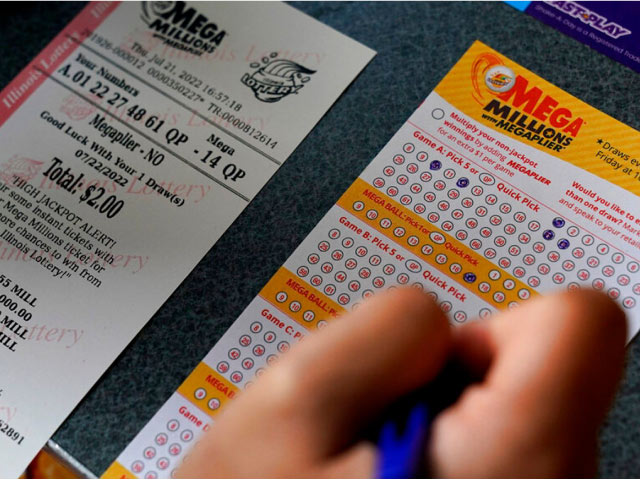I. The lottery market in the USA, a market which has been expanding since the beginning of the 21st century
The lottery is one of the oldest forms of games still practiced around the world!The Market Lottery in the USA is managed by the State. There are 48 jurisdictions: i.e. 45 states plus the District of Columbia, Puerto Rico, and the US Virgin Islands. Each jurisdiction has laws that are different. Thus, each lottery is managed independently by each jurisdiction. Lotteries are not organised nationally, however, there are consortia between state lotteries. This makes it possible to have lotteries that cover larger geographical areas, so the jackpots that can be won by players are larger. The two major lottery games that are offered in almost all jurisdictions are Mega Millions and Powerball.
Lottery policies within states can have conflicting goals. As the instructions depend on the States, they sometimes choose to have reduced advertising and financing while producing the same amount of income. However, this has sometimes led to flaws in the system. When the budget for advertisements is limited States must use free game coupons to fund advertisements. Only coupons have monetary value and, therefore, should not be free. This, therefore, leads to differences between States and can be conflicting. Also, some states don't want to have lotteries for religious reasons, like Alabama, for instance. Others for reasons of state constitutions, like Utah, which prohibits all forms of gambling. Other states think that lotteries can have a bad influence on casinos. Indeed, this could work against the casinos in the long term, which would thus be less frequented by the population. Other states see the lottery as a boon to offset budget deficits. For example, between 2017 and 2018, Americans spent an additional $5 billion on various lotteries. In 2018, the amount was $77.7 billion. Thus, state lotteries have become an important source of revenue for states.
As mentioned above, not all states have lotteries. In October 2018, members of the lottery commission were appointed in Mississippi. By enacting the law passed in 2017 they became one of the latest States to legalise gambling in that year.
For both Mega Millions and Powerball lotteries, each of the 45 states has offered these lotteries since October 2020. Again, Mississippi was the most recent to join the two, starting sales in January 2020. One State, Puerto Rico, has chosen not to offer Mega Millions or Powerball.
II. American lottery games: accessible to all
The good news in American lottery games is that everyone, residents, non-residents, and tourists can participate and collect the jackpot. The only condition is, of course, to be 18 years old. However, you will have to be careful because the final winnings will depend on your place of residence, as the terms and conditions differ in each State, which reserves the right to tax your winnings.For example, the table below relates the taxes :
Federal level State level
➔ Less than $600 in winnings: nothing to declare
➔ Greater than $5,000 in winnings: a 24% federal withholding tax.
➔ Earnings greater than $500,000 for a single person: the tax rate is 37%.
➔ Earnings greater than $600,000 for a couple: the tax rate is 37%. ➔ New York : If a person wins the jackpot: the tax rate will be 8.82%
➔ Non-income tax states, such as Florida and Texas, will not tax lottery winnings
➔ Three other states that have state taxes (California, New Hampshire, and Tennessee) will not tax state lottery winnings.
➔ Finally, most states will not charge state taxes to non-residents on their lottery winnings, with the exception of Arizona and Maryland.
III. Major trends expected
In the future, it might be that the states that have not yet adopted a lottery will do so in time. Also, States encourage internet applications to play the lottery so that as many people as possible can participate.In the coming years, it is predicted that the lottery market will increase. For example, it is expected that between 2020 and 2025, this market will increase by USD 27.9 billion. Also, this growth will originate 100% from the USA, so it will be good for the USA lottery market. The states have to make an effort if they want to keep the players because there are a lot of players occupying the lottery market.
The Covid Period has encouraged people to buy lottery tickets online. Also, the web is now the easiest way to buy tickets, and many people are online for as long as 8 hours per day. The lottery market will certainly see more growth online in the future. If the USA follows the Mondial trend, it will be possible that it increases in the same way. For now, it is planned that the Mondial increase between 2022 and 2027 will be 0,42%.
The final question can be if it is tempting for the states or the people to play the lottery.
The increase in the prize money encourages people to buy a ticket. The lottery is a source of hope, and so people will continue to buy lottery tickets hoping to win. Yet for the lottery Mega million, the chances of winning the jackpot are low, only 1 chance out of 306.5 million. The lottery market in the United States could certainly become one of the most stable financial markets in the world in future years.
In any case, if the market on the internet grows, it will be more tempting to play the state lottery than the online lottery. In fact, as the number of people playing the online lottery increase, the odds of winning decrease.
So, maybe some people stand a better chance of winning the State Lottery. And if this is the case, there will be an increase in players in this lottery. That is the nature of the market.









